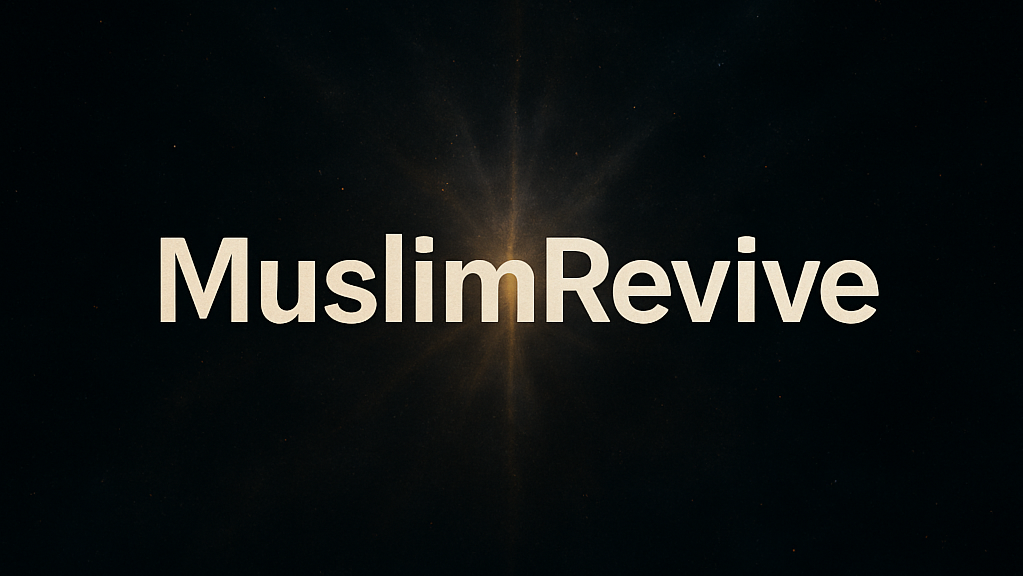Israel is Irrelevant - In the Qur’an and Hadith
Israel is Irrelevant – In the Qur’an and Prophet Mohammad
Israel is not as important as many Muslims assume. At least, not according to what the Qur’an reveals and what is reported in Hadith. However, some Muslims think that the current state of Israel was already foretold.
In the Qur’an, in Surat al-Isrā’, in āyah 4, it states of Banī Israel being dominant twice in history and cause great mischief and tyranny.
{And We decreed for the Children of Israel in the Scripture: Ye verily will work corruption in the earth twice, and ye will become great tyrants.}
It is important to note that scholars have differed greatly in interpreting this āyah. What they agree on, however, is that the āyah refers to periods that pre-date Islam meaning that the two periods referred to have already passed. Figures such as Jālūt, Tālut, and Dāwūd are often cited as examples of those earlier eras. Others point to the reign of Nebuchadnezzar in Babylon and the story of Zakariyyā.
Other example is the ancient kingdoms of David and Solomon, which later were divided into Israel and Judea. Also, the Hasmonean dynasty of Judea, which lasted from the 2nd century BCE to the 1st century BCE. Although neither were empires in the strict sense, both remain highly significant in the history of Judaism.
A small minority of scholars hold a different view, suggesting that this ‘corruption and tyranny’ refers to events after Islam. According to them, the first occurred during the Prophet’s time with Banī Khuzaymah, a troublesome Jewish tribe that resided in Madinah at the time of the Prophet, and the second is unfolding now in Israel.
That said, there is also no authentic mention in the Prophetic Hadith of Israel or Jews ever taking over the world in finance or politics. The Prophet (PBUH) only spoke of significant events that had either already occurred or were to occur in the end of times. Nothing in the Hadith suggests that Israel represents one of these significant events. Despite their present dominance, tyranny and the existence of their pariah state, the Prophet (PBUH) never mentioned them by name.
The Difference Between Banī Israel and Jews
It is crucial to understand that in the āyah, Allah Ta‘āla is addressing Banī Israel and not the Jews.
Banī Israel belonged to the family of Ya‘qūb (alayhi al-salām); they were his direct descendants. The term “Jew” only emerged after a division between the ancient Israel and Judea. Many followers of Banī Israel aligned under this new identity, and the name “Jew” became a religious designation encompassing them all.
During the Prophet’s time, Allah Ta‘āla addressed the Jews in the Qur’an, not Banī Israel. This is because the people in Arabia at that time identified with the religion of Judaism rather than the lineage of Ya‘qūb. There were many Arab Jews, but they were not of Banī Israel. In the present day too, “Jew” is a religious label, not a bloodline from Ya‘qūb.
The Prophet’s silence on the name “Israel” suggests that today’s Jews do not represent the true lineage of Banī Israel. Instead, what exists today is a political project: a “Zionists movement.” Statistics reinforce this: around 43% of those identifying as Jews in Israel are secular and do not practise their religion. Another 12% are strictly observant, but most of them reject the current Israeli state. Only a small percentage, those aligned with “Zionism”, actively combine politics with religion. This minority, including figures such as Netanyahu (a secular Jew), currently governs Israel.
Were the Jews Mentioned in the End of Times?
The Qur’an only refers to the past in this matter. As for the future, the Prophet (PBUH) reported what was revealed to him. In this context, he only mentioned the Jews once: alongside al-Dajjāl, the Antichrist, whom they would follow from the city of Isfahān in Iran.
Aside from this, neither the Qur’an nor hadith ever mention Israel as we know it today. Some may wonder why, given the current atrocities in Palestine. One possible reason is that the present occupation, while severe and horrific, is relatively short compared to other historical periods of suffering. For example, during the Crusades, Palestine endured nearly 100 years of massacres before Ṣalāḥ al-Dīn liberated the land.
Other devastating eras in Palestine include the invasions by the Canaanites, Babylonians, Persians, Romans, and Byzantines. These episodes lasted centuries and inflicted immense suffering. By contrast, the present genocide, though horrific, has not yet spanned the same duration. The Prophet (PBUH) may not have mentioned it for this reason. Nonetheless, the suffering of today is no less tragic and horrendous, and there is wisdom in why certain events were not explicitly foretold. The state of Israel can be understood instead as a temporary state - one that creates havoc, rules for a short period, and then eventually passes.
So, what is the point of this article?
The message is simple: the current pariah state will eventually come to an end, perhaps sooner than many expect. Muslims must hold on to hope and reassurance, for Allah Ta’alah and the Prophet (PBUH) already gave us that in the Qur’an and hadith. Therefore, we must continue to make du‘ā, keep our īmān strong, and never give up.
Although hopelessness lingers in the air, such despair only adds to the negative energy surrounding the oppressed and wounded people of Palestine. By contrast, our du‘ā, hope, and steadfastness are the forces that will sustain them and give them strength.


